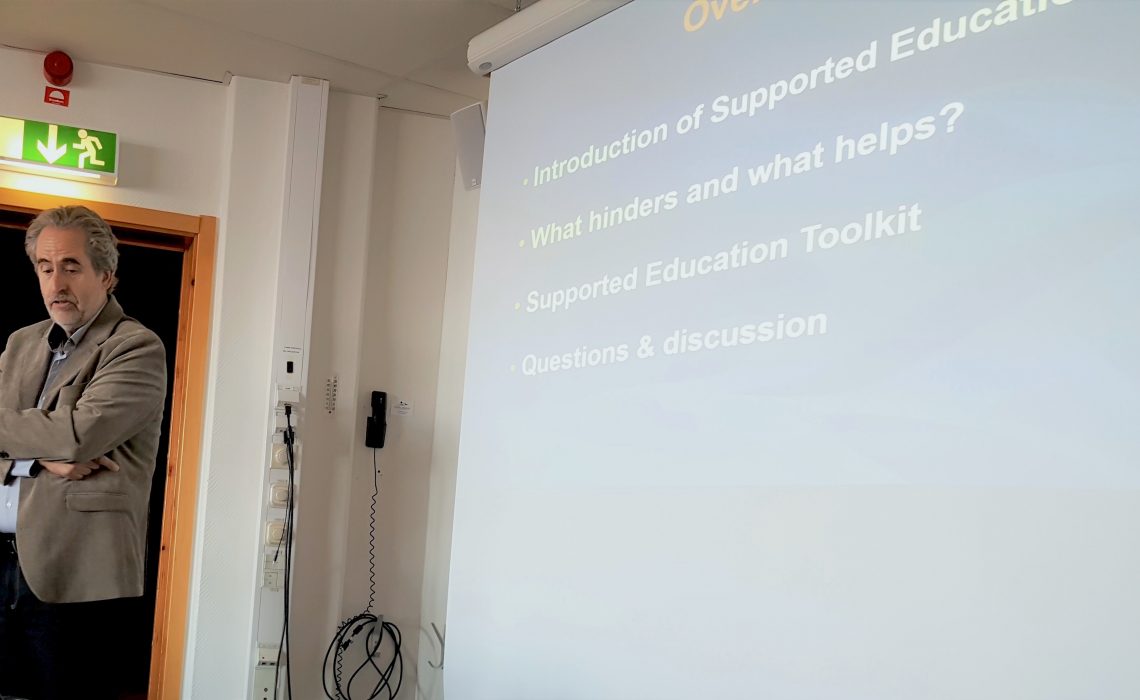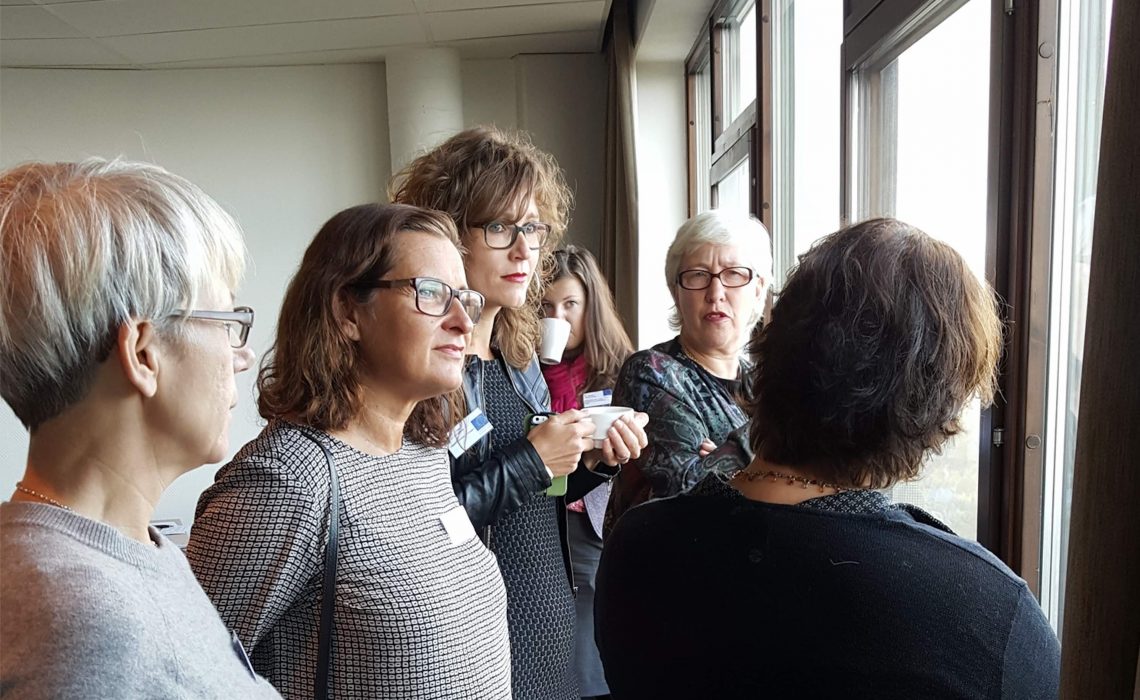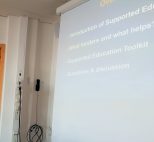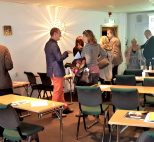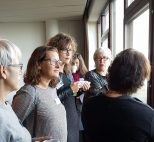Starting conference: The art of supporting without leading
Too many young students are leaving school, but we could do more to support them if we let them make the decisions. The professionals should not be leading in the long run, merely support the students. This was one of the points made by Lies Korevaar, Professor of Rehabilitation, Hanze University, Groeningen, the Netherlands.
He was one of the speakers on the first conference of SECiSo, in Sundsvall, September.
– If you are on a tandem bike, you should let the student be in the front steering as soon as possible and let the coach or the professional support in the back, said Lies Korevaar.
The conference was attended by a wide range of representatives from schools, projects, (School2work), The Nordic Welfare Centre and SECiSo-partners from Hamburg and Groeningen.
It was the first of a series of conferences in a transnational exchange of experience with the aim to build up a knowledge base and a community of practice( network), for professionals working with support to young persons and early school leavers, with psychosocial difficulties.
Susanne von Bonin, from the project Come In, Hamburg presented the results of training and coaching of young persons. Their work is based on a fruitful cooperation with a one-stop –shop, regional job center in Hamburg.
The conference had a North European scope and the situation in different Member States was discussed. Surprisingly, some of the areas with a high percentage of NEETS (not in training or education), have a low degree of youth unemployment. That is the for example the case in Mid-Norway where work in fisheries is available without higher education. Lidija Kolouh–Söderlund from the Nordic Welfare Centre presented a comprehensive picture of the situation for young people in the Nordic countries and the Baltic Sea area.
– The number of youth outside, the NEET, is constant, over different periods 8-9 per cent, despite changes in the labour market, said Lidija Kolouh.
The Swedish Inheritance Fund, is according to director Per Callemo, a risk capitalist for civil society. The Fund recognizes the need of associations and interest groups to take part in the interventions to increase the support for vulnerable students.
In line with that strategy, young IT-entrepreneurs presented a new tool for support. The firm Exponential have together with RSMH developed an app, Lifecensr, that gives the user the opportunity to challenge themselves to learn new skills and experiences through gamified, experience-based learning. Lifecensr gives the individual the necessary tools to get an active life and life-long learning using interactive methods.
The Sundsvall conference aimed at laying the foundation for the build up of the knowledge base. The meeting was also a way to disseminate understanding and awareness of the method Supported Education.
The next step for the project is to screen a series of questionaires among professionals and reports from focus groups from different Member States.
Text and photo: Jacob Schulze
Images. Above: Lidija Kolouh, Nordic Welfare Centre, Jacomijn Hofstra, Hanze University and Kristina Båth, RSMH. Below: 1. Lies Korevaar, Professor Hanze University, Groeningen. 2. Participants. 3. As above.

